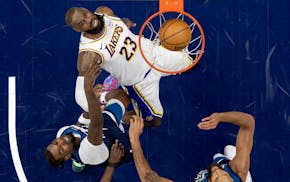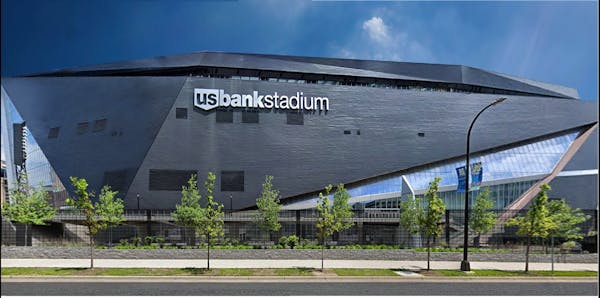Target Field will get $3.2 million in security upgrades to its perimeter with a resolution approved Thursday by the Minnesota Ballpark Authority.
While not as dramatic or as expensive as the fencing going up around U.S. Bank Stadium, the enhanced perimeter at Target Field shares the goal of meeting federal anti-terrorism standards for large public facilities.
The upgrades at the 13-year-old Target Field are still being designed, but will mostly involve adding bollards on portions of the perimeter to meet standards set by the Department of Homeland Security. For example, some parts of the building will need to withstand the impact of a 15,000-pound vehicle traveling at 50 miles per hour. Other areas do not need as much protection because they aren't as easily accessed by roads.
Minnesota Ballpark Authority (MBA) Executive Director Dan Kenney said the plan is in its early stages but the granite benches along N. 7th Street will likely be replaced with reinforced vertical posts similar to those in front of the nearby Target Center. The MBA is the public agency that oversees the building for the taxpayers.
The benches cannot withstand much impact. "There have been issues with cars hitting them and they move," Kenney said.
There will also be enhancements to the ballpark's south lot where players and staff park. The parking lot entrance will get two new K-rated hydraulic crash arms.
A portion along North 5th Street, near Gate 3, will also need additional bollards, Kenney said.
The project will be a multiyear effort that entails removing sections of the existing concrete, setting the new bollard frames in place and pouring a fresh layer of concrete over the top. This work should be done in the summer rather than the winter, Kenney said.
The work will take place when the Twins are on road trips with some occurring in 2024 and some in 2025, Kenney said. The cost is split between the MBA and the Twins. Kenney said they're also applying for a federal grant which would reduce the split.
On the other end of downtown, U.S. Bank Stadium received $15.7 million for the first phase of its enhanced perimeter. The Minnesota Sports Facilities Authority, which oversees that seven-year-old building, expects the second phase of the perimeter to cost $48 million next year.
It has yet to be determined who is going to pay for the second phase or the nearly $280 million in maintenance the building will need in the coming decade.

Scoggins: Redick's no-sub second half looked desperate, appears damaging

Edwards scores 43 as Wolves gain control of series with Lakers

Souhan: Timberwolves star works in a shove while pushing Lakers to a precipice
Coach and athletic director who put Hamline on the rise dies at 100


